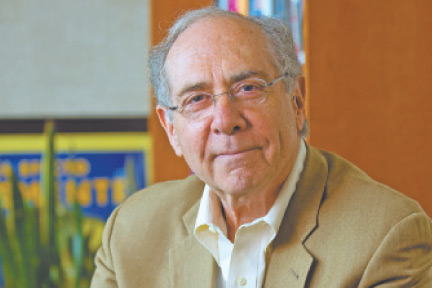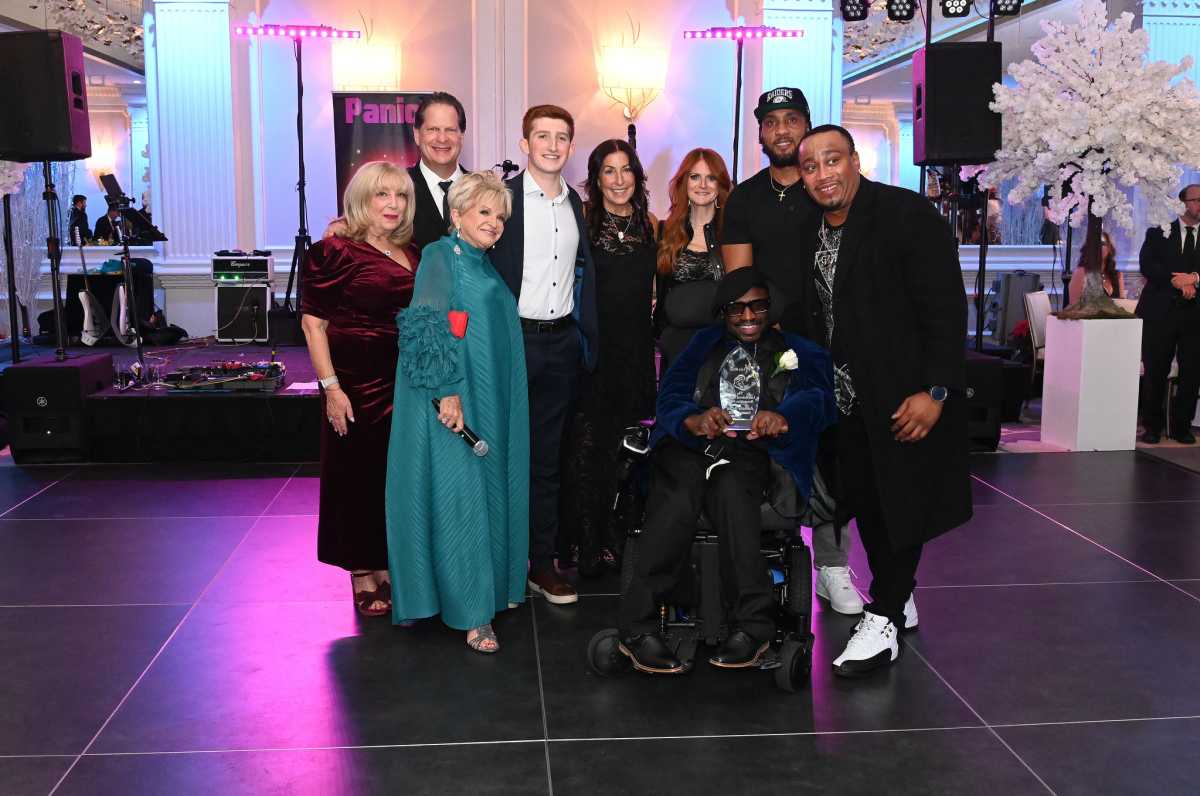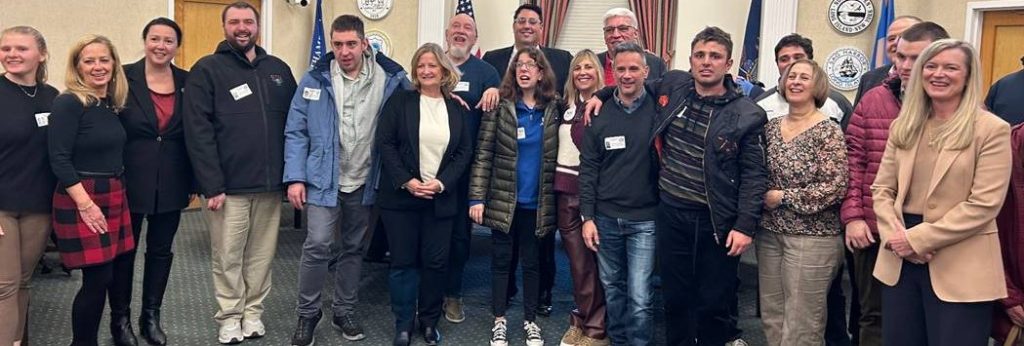Who's Here: Writer Robert Lipsyte

Robert Lipsyte, the current ESPN Ombudsman, former New York Times sportswriter, Emmy-winning TV commentator and the author of numerous best-selling books for young adults, was born and raised in Rego Park, Queens, in the 1940s and 1950s. His mother, Fanny, was an elementary school teacher. His father, Sidney, was a school principal and later headed up the City’s schools for emotionally disturbed students.
“Dad sometimes took me to school with him,” Lipsyte says. “He was like the captain of a ship. He’d take me through those rough halls and introduce me to some of the toughest kids in the city. I loved the way they respected him.
“Dad also took me to the library every week,” he said. “That was like going to a ballgame for us.”
Three teams played in New York City back then, the Yankees, the Giants and Dodgers, so baseball was all around. They went to one baseball game together. Lipsyte did not go to another one until he covered baseball for The New York Times.
Lipsyte was bookish, nonathletic and overweight. Kids teased him about his weight. One of his three best-known novels for young adults in later years, One Fat Summer, was about a kid who was overweight. In the book, the kid loses weight. In real life, Lipsyte lost weight at the age of 14 simply by mowing lawns and doing landscaping for a mean old man in the neighborhood.
“I think I lost 40 pounds that summer,” he said. “Before that, I wouldn’t stay on a scale. I’d see it heading up toward 200 and hop off before it could get there.”
Lipsyte took accelerated courses at Forest Hills High School, and graduated Columbia University with a degree in English at the age of 19. He applied to, and was accepted into, the Claremont (California) College’s PhD program. He sent a room deposit. But he needed a summer job before school began and answered an ad for a job as a copy boy at The New York Times.
Lipsyte said he was among dozens of people in line for one of those jobs. The interviewers were chilly, arrogant people who said they were looking for Rhodes Scholars for copy boy jobs at the Times. He had no illusions he’d be getting the job.
Later that day, he came home to hear his mother tell him that some crank call had come for him from someone saying they were from The New York Times and they wanted to talk to him.
Bob Lipsyte was to become the youngest full-time sportswriter at any daily paper in the city of New York. He would achieve that at the age of 21.
“I was one of three sports copy boys,” he said. “We rotated on shifts from 5 p.m. to 3 a.m. so there always was one of us there. We worked in the back of the City Room at the Times, a vast hall where the reporters, editors, clerks and copy boys worked. I’d deliver messages, go up to the composing room, talk to the reporters, sharpen pencils, bring copy to the make-up people.
“We’d write up all the statistics, schedules, and if we wanted to we could go out and cover sermons on the weekends, attending churches or synagogues in the city, writing 200 or 300 words for five bucks.”
Lipsyte said the priests sometimes would invite “the reporter from The New York Times” into the back after the service to share a scotch. He was free to take notes in church pews, but in Synagogues, he had to do so under a shawl. In the office, he made friends with the legendary reporter Gay Talese, who became his mentor.
“He was very generous with his time and advice,” Lipsyte said. “I learned his secret. Work hard.”
Needless to say, Lipsyte decided not to go to California, even though it meant losing the room deposit. He eventually received a Masters Degree in Journalism from Columbia while working as a copy boy.
Lipsyte was a junior sportswriter at the Times when the upstart heavyweight boxer Cassius Clay got a date to fight the champion Sonny Liston in Miami Beach in 1964.
“Everybody was convinced this fight would last about nine seconds. And the only thing we would be able to be report on was the condition Cassius Clay was in afterwards. He would be taken to a hospital. The editors felt it would be a waste of the real boxing reporter’s time to go all the way to Florida for this. So they sent The Kid. Me.”
Lipsyte’s first assignment when he got to the Miami Airport a week before the fight was to rent a car, locate the most likely hospitals where Clay might be taken, and then drive from the arena to these hospitals and memorize the fastest way to get there. The idea was to beat the other reporters to the scene.
After checking out the hospital routes, Lipsyte went to the gym where Clay was training. When he got there, however, Clay was not yet there, although expected shortly. Instead there were these four slender English musicians called the Beatles, young men wearing bellbottoms and longish haircuts. There was supposed to be a photo shoot for some publicity with Clay. Where was he?
“These boys were disruptive at the gym and so were asked to wait in this dressing room area until he arrived. I went in with them. They were very annoyed, and kept calling Clay this ‘overhyped wanker’ they had to meet. They wanted to leave.
“Eventually Clay arrived, and after he stripped down to his boxing trunks and put on some gloves, he called out to them in the locker room, ‘Come on Beatles, let’s go make some money,’ and they came out and they did this mugging around in the ring where he pretends to hit them and they, lined up in a row, fall over like dominoes. There was a lot of capering around. It’s on YouTube.”
Eventually, the Beatles left. And Clay, who had acknowledged the presence of Lipsyte earlier, now turned to him and asked, “Who were these little sissies?” and Lipsyte told him they were a rock group from England who would likely never be heard from again.
But Lipsyte was strongly impressed with Cassius Clay. He was young, strong, big and handsome and over-the-top confident.
“I became a believer,” Lipsyte said.
Of course, the fight turned boxing upside down. Lipsyte was at ringside. Clay pummeled the lumbering Liston round after round, and at the end of the sixth, Liston quit on his stool. And that, according to Lipsyte, “made my career.”
“Do you think he had had enough? Was he faking?” I asked, referring to Liston.
“I think it was a bit of both. He had a rematch contract. So he knew there would be another day.”
“At which he got knocked out in the first round.”
Cassius Clay, now champion, changed his name to Muhammad Ali. He fought and beat challengers. He refused to join the Army for the Vietnam War, famously saying “I got no quarrel with them Vietcong.” Lipsyte was now covering Ali exclusively for the Times. And soon he had a sports column in the paper.
Two nights before an Ali fight with Floyd Patterson, Lipsyte took the legendary boxing trainer Cus D’Amato out to dinner. What D’Amato told him I think had a great influence on him.
“He told me about a gym he once owned in a tough neighborhood in Manhattan. It was at the top of three dark narrow twisting flights of stairs. He often slept at the top of the stairs, with a gun and a German Shepherd.
“But he slept with one ear open—listening for the kid who would come up those stairs alone, at night and scared, but willing to conquer his fear to become somebody, a fighter, a contender.”
Lipsyte had never been a big sports fan. He has famously said he only fell into sports writing because that’s where he was assigned. He now found himself mostly interested not in the thrill of sports but what sports could teach a young person about life. And that became the theme of his first #1 best-selling book for young readers, The Contender, which came out several years later. His many books that followed continued along with this theme. Young men don’t necessarily win the trophy. But they learn many lessons.
Perhaps the most controversial of all Lipsyte’s books is Raiders Night, now banned in many schools, not only for its sex, strong language and description of drug use, but for its tough look at the underside of high school football. He calls it a kind of Friday Night Darks.
Lipsyte continued on as a sportswriter for The New York Times for 27 years, at first from 1957 to 1971, when he left to write more books, and then again from 1991 to 2003.
He was a correspondent for CBS and ABC News, and he had a nightly public affairs show on Channel 13, which won him an Emmy.
Lipsyte wrote the book Free to be Muhammad Ali in 1978. He wrote Joe Louis: A Champ for All America in 1994. He wrote Heroes of Baseball in 2006. He also wrote two memoirs, one about cancer, in 1998, In the Country of Illness, and two years ago, An Accidental Sportswriter.
Currently, Lipsyte is the Ombudsman for ESPN, a job similar to the Public Editor at The New York Times. Both sometimes take reporters and editors to task.
“I met Margaret Sullivan, the Times Public Editor, recently at a panel in Washington,” said Lipsyte. “She has a much tougher job than I do. She sits in the middle of the Times newsroom and people glare at her.”
Lipsyte gave me an example of how he tries to keep ESPN on the straight and narrow.
“Professional basketball star Jason Collins had announced he was gay. ESPN had a show about it. What did it all mean, to him, his team, basketball, society? Interesting stuff,” he told me.
“But instead, it became a debate on Christianity,” he said. “One panelist talked about how this could be a good thing for gay men in sports as well as gay youngsters. The other said that homosexuals walked in open rebellion to Jesus. Interesting, too, but not for a sports show.
“ESPN did not do their homework with this second panelist, a regular ESPN basketball reporter who was also a born-again preacher. He’d written about it—for ESPN! They should have known.”
I did ask Lipsyte to tell me some of the sports experiences he had had. He said he had been at the NASCAR race where Dale Earnhardt died.
“There had been an 18-car crash earlier in the race. In my inexperience, I assumed everybody was dead. But everyone was fine. And then, on this last turn, in the last minute of the race, Dale’s car hits the wall, and it looked like a little bump. I heard on the NASCAR scanner the crew trying to contact him. ‘Talk to me, Dale, Dale, talk to me.’
“Then men ran out and threw a blue tarp over the car and women in the press box began to cry. It was a very powerful moment.”
He told me what it was like to hit at batting practice at the first spring training of the first year that the New York Mets were formed—a bunch of ragtag ball players who caused coach Casey Stengel to exclaim “Can’t anybody play this game?” as they lost more than 110 games that first season.
“It was great fun,” Lipsyte said. “I was sent to cover spring training. I was 24. I brought my glove down and my Olivetti typewriter. I got to bat in batting practice. I got to go out in the outfield.”
He also came to know Casey Stengel. “He was a great storyteller if you could stay with him long enough to get to the end. He was very sharp. But he did drink a lot.”
Robert Lipsyte was married briefly at 21, then married Marjorie Rubin, a novelist who also wrote cultural pieces for the Times. They were married for 25 years and had two children, one of whom, Sam Lipsyte, today at 45 teaches creative writing at Columbia and has just written the best seller The Ask, which is a darkly comic novel.
“He is my mentor,” Lipsyte says of his son. “I call him for advice all the time.”
He also has a daughter, Susannah, who became a lawyer and today is 42 and living in Brooklyn. She has one child. “She also writes, but mostly legal briefs,” Lipsyte says of her.
Lipsyte’s wife Marjorie died in 1996. He is married now to Lois B. Morris, an Allure magazine columnist and author of several books, including the recent Along the Roaring River: My Wild Ride from Mao to the Met. Lois is president of the Shelter Island chapter of the League of Women Voters.
They live today on the Island with Milo the dog and an extended family of children and grandchildren who visit them as often as possible at their home on West Neck Road.
I asked Lipsyte what he liked about the East End.
“I like its sense of community, the chance to participate in government, being surrounded by beauty.
“We have a lot of friends out here and the family loves to visit. We love the quiet after the season. I especially love it in the wintertime. I rented in East Hampton years ago, but I’m just not chic and hip enough. I’m still not thin enough. I love Shelter Island. The Rock is for me.”









